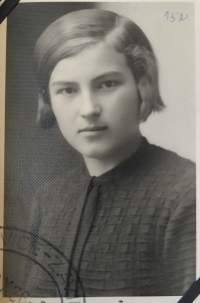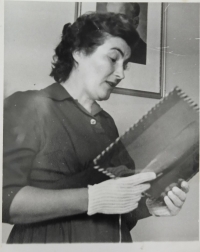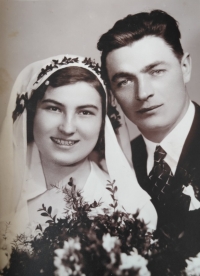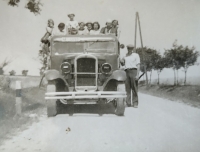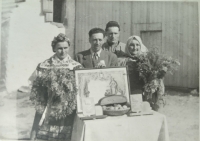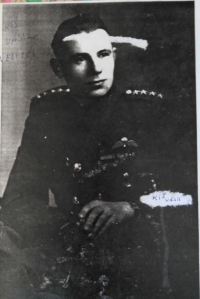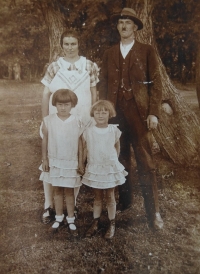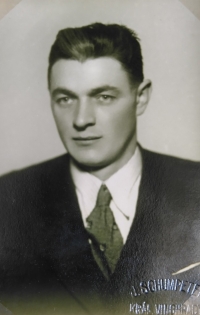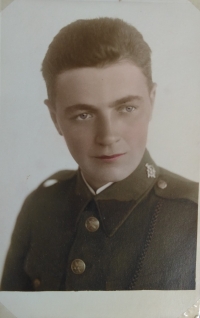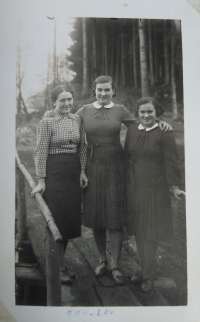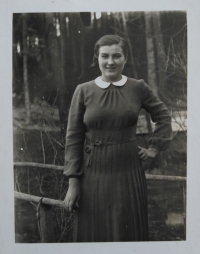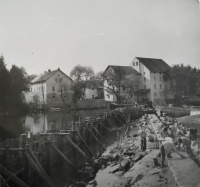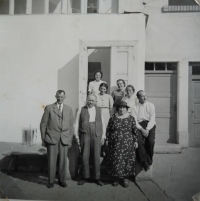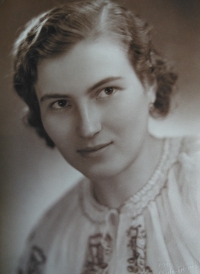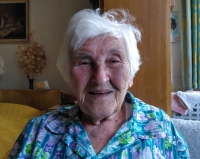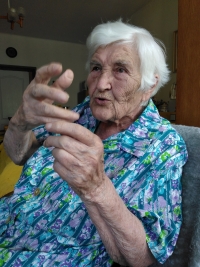During the whole war we had one foot in the prison

Download image
Jiřina Vašíčková, née Náměstková, was born on 23 August 1922 in Nové Ohništ’any near Nový Bydžov, the eldest of five daughters. Her father Josef worked as a blacksmith in various farms and the family was constantly moving. In 1928, Jiřina entered the primary school in Libočany and continued her education at the town school in Rakovník. After the occupation of the Sudetenland in the autumn of 1938, the family had to leave their former place of work in Poláky u Kadaně and move to Prague, where the Czech Heart (České srdce) association arranged accommodation and food for the refugees. Jiřina first worked as a housekeeper for a Prague lawyer, but when he dismissed her from the service, she moved to Ječná Street to a convent, where she was soon chosen by the lady owner of the Brejlov mill on the Sázava River to work there. Here she worked in the kitchen until 1940, when she married Josef Vašíček and moved with him to Čisovice. Two daughters were born to them. His brother-in-law ran the Lucký mill near Čisovice, helped the partisans during the war and together with Josef Vašíček, who ran a car transport business, supplied the area with flour ground illegally. The Vašíčeks also helped the commander of the Jan Kozina partisan group, Vasil Kiš, with whom they remained in contact even after the war. At the very end of the war, Josef Vašíček was forced to go to the front with his car as a car transporter and helped, for example, after the air raids on Znojmo. After the liberation of Čisovice by the Red Army, a military hospital was set up in Vašíček family house, and a Soviet major staying upstairs. In 1948 the communists nationalized their car transport company and their daughters were not allowed to study because of their class background. Jiřina Vašíčková worked at the national committee in Čisovice, headed the local registry office and was also chairwoman of the local Red Cross. From the late 1960s she worked in Mikrotechna in Modřany, where she worked her way up to manager of the goods reception. She was widowed in the late 1960s and lived briefly with her second husband in Louny, where she worked as a cook in the local agricultural school. She then moved back to Čisovice, where she was living at the time of recording in 2021.
